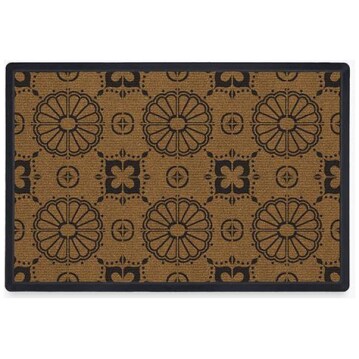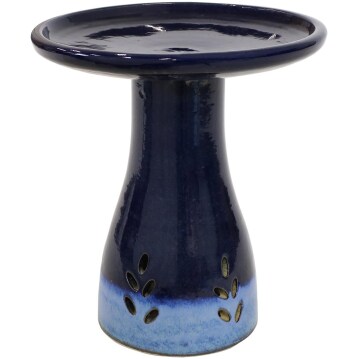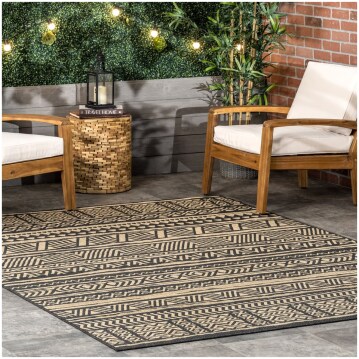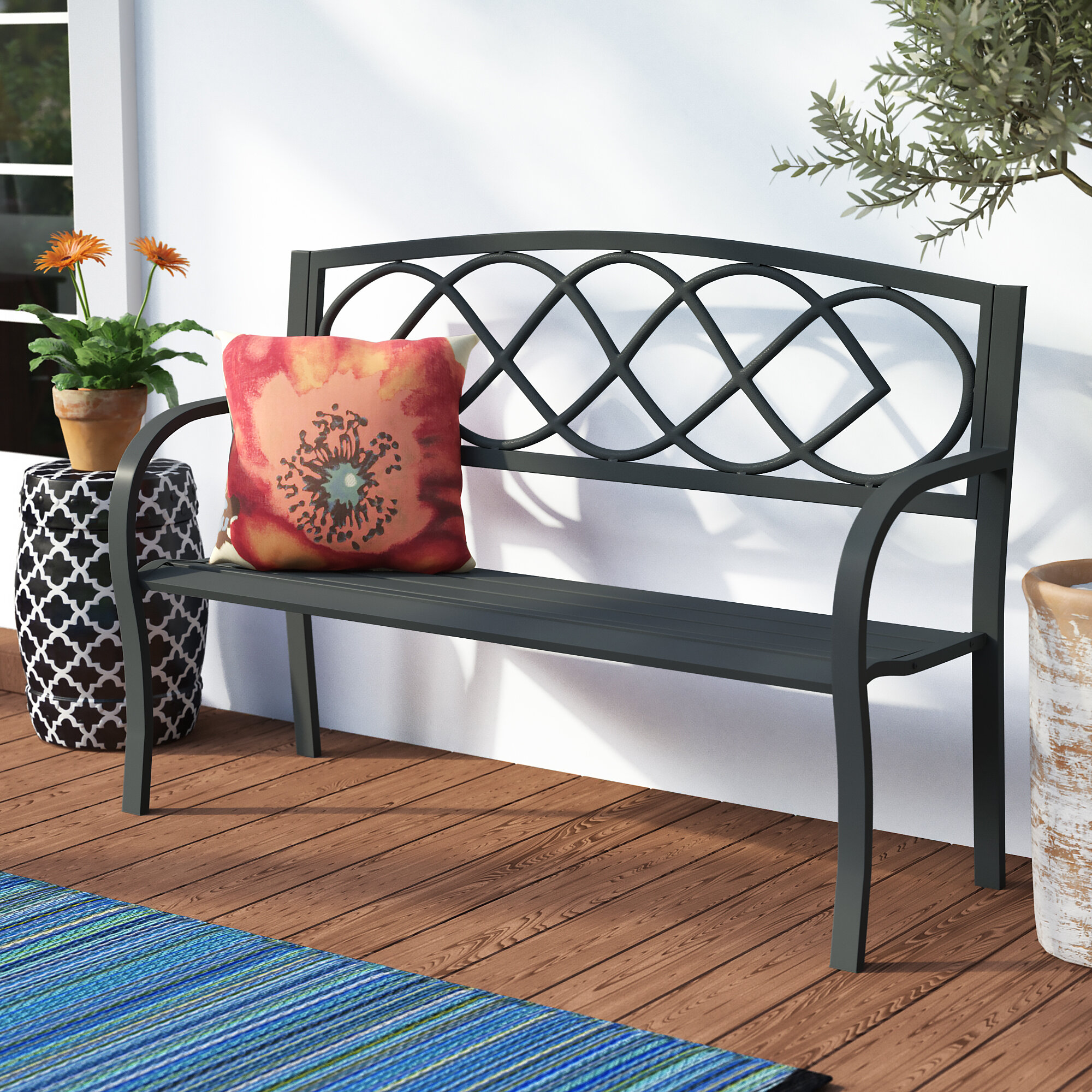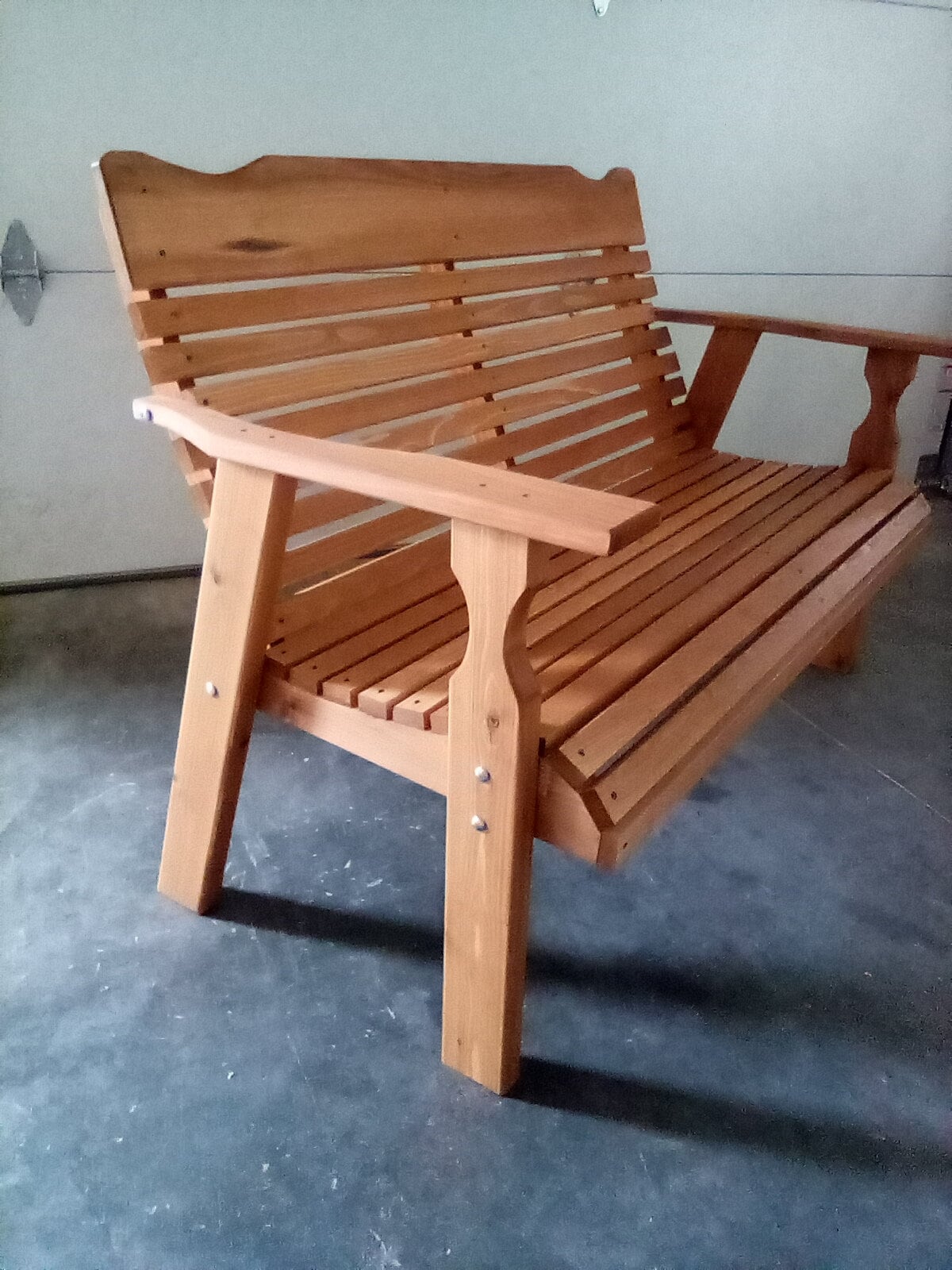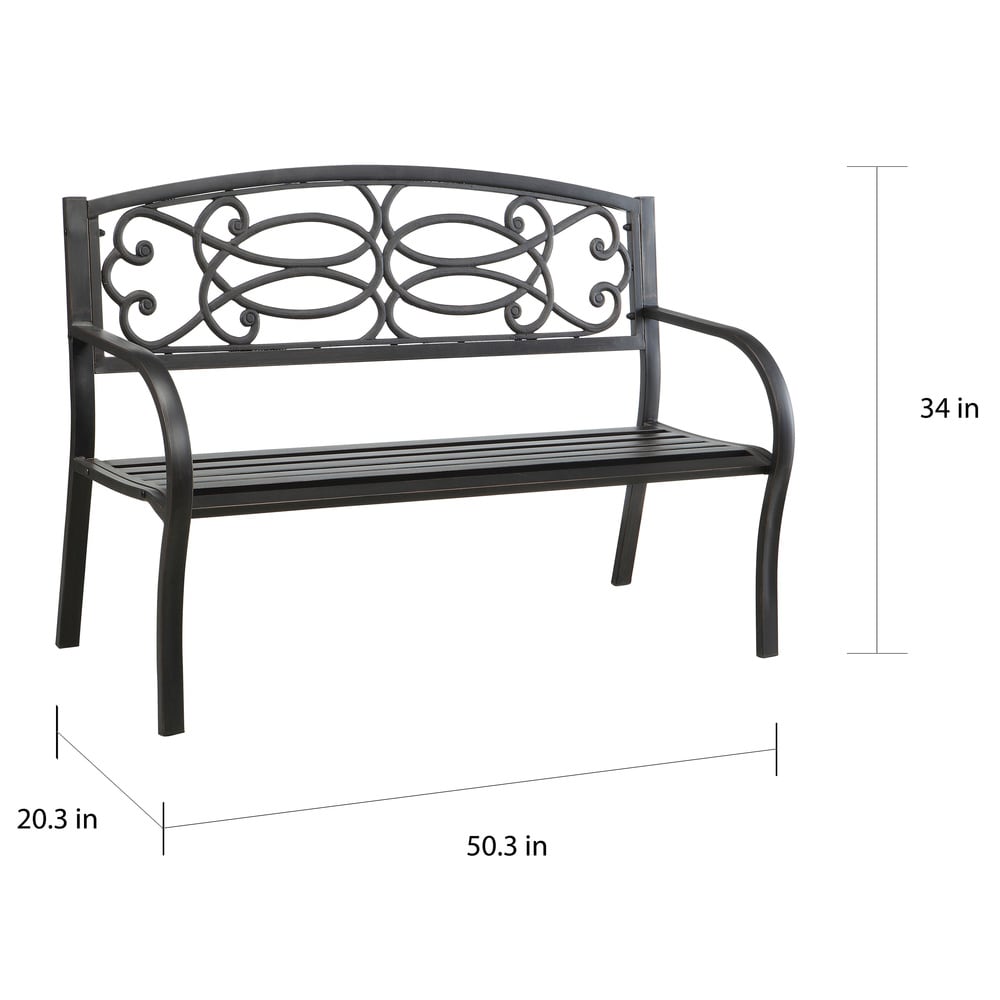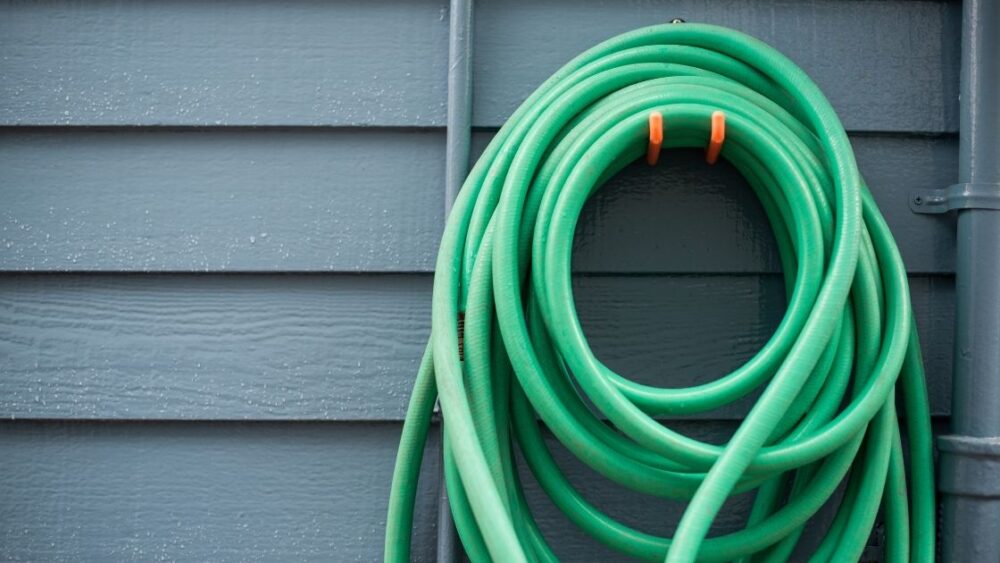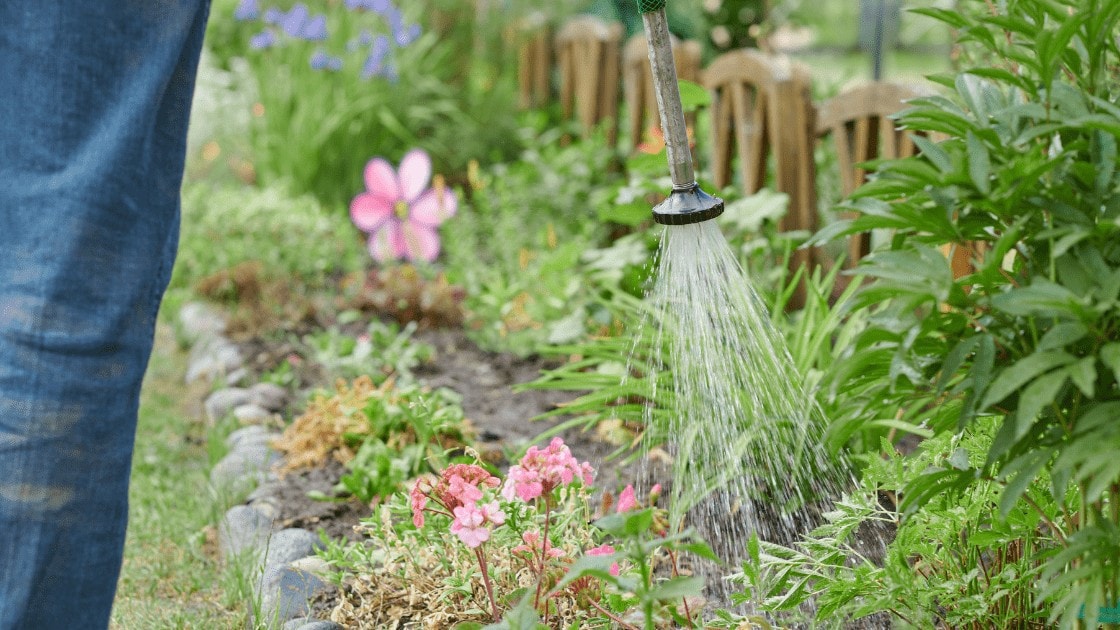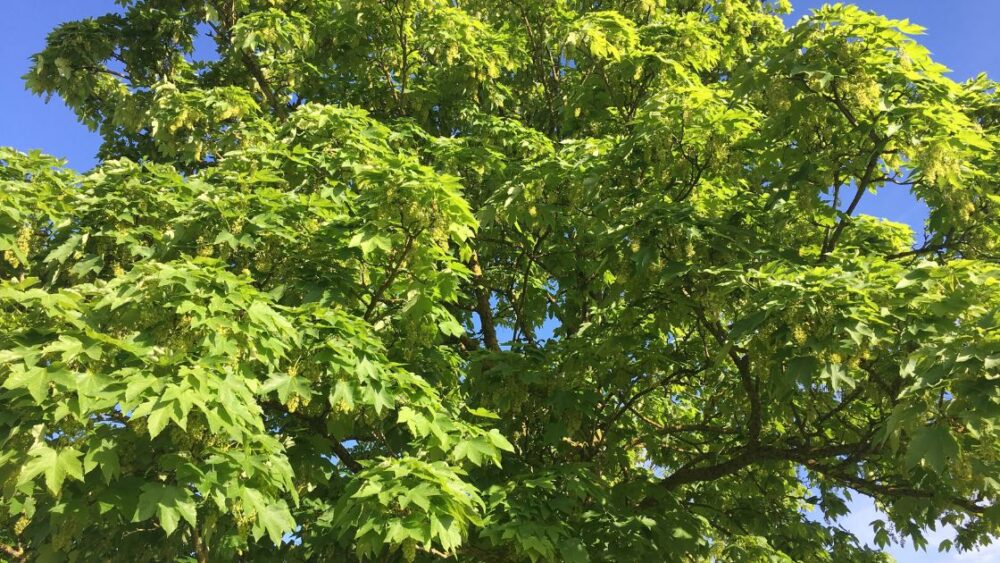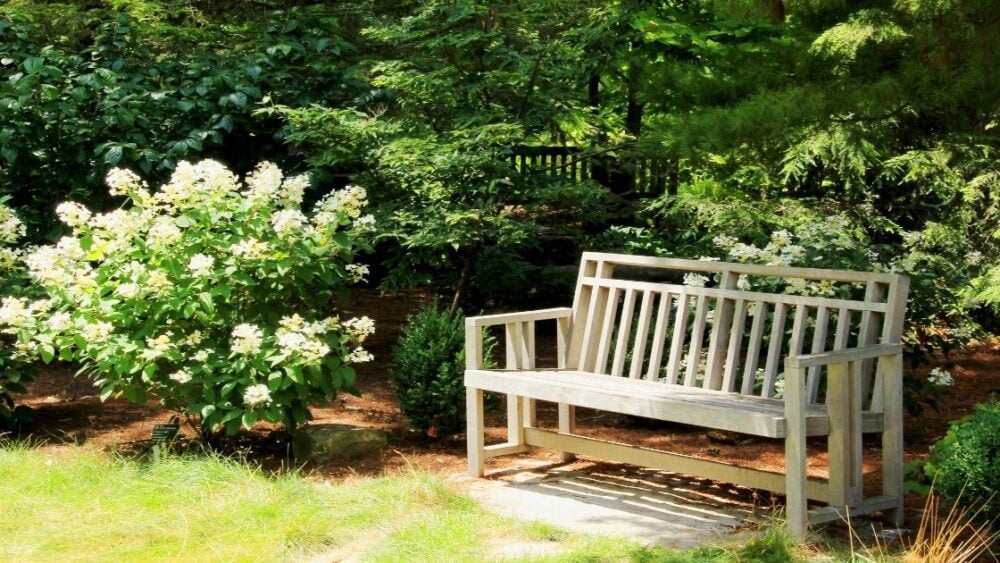
Choosing a suitable bench for your garden is a relatively simple task – there are only a few factors to consider, which we’ll go over in this article. For most people, the only important factor will be how the bench looks – for others, the durability and resistance of the building material to the elements may take higher priority.
Other factors include the mobility of the bench and whether or not there is assembly required after the bench is purchased. And lastly, there are a few additional features to consider, such as cushion pads for increased comfort, storage compartments and planters incorporated into the design.
What Should I Look for In a Garden Bench?
In this section, we’ll go over the main factors you should take into account. In the end, the vast majority of garden benches available on the market today are reasonably durable and will last for years, so the decision mainly comes down to the style, aesthetics and the comfort level which the bench provides.
Browse our Affiliate Products
Look and Style
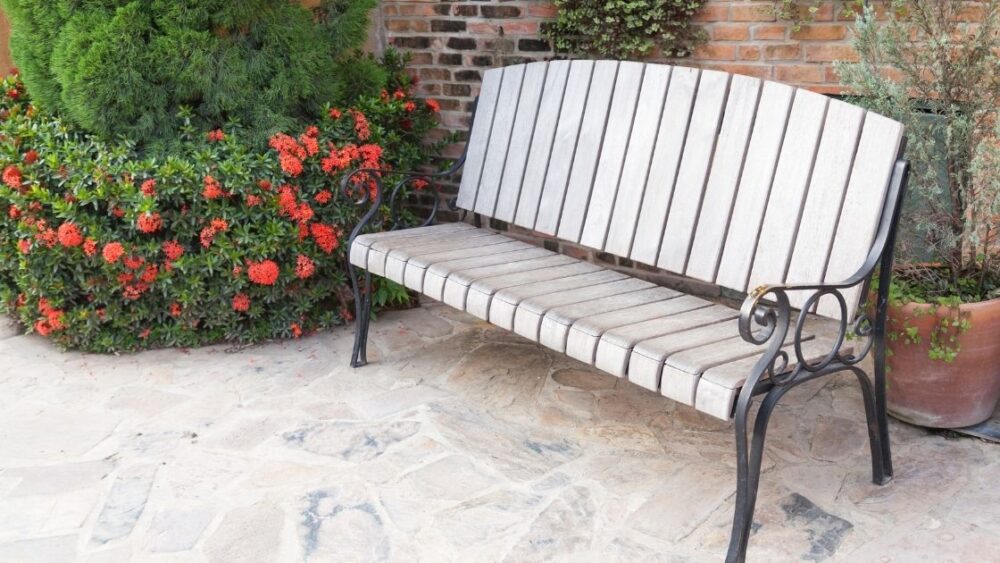
Considering the similarity in the durability of all modern bench materials, you can make a good argument that the look and the style of the bench is the most important factor. In the end, garden benches all offer a similar level of comfort for sitting (which can always be improved with cushion pads) so you may want to just take a look around and pick a bench that looks attractive to you.
The only design factor that will largely influence the comfort level of the bench is whether or not it has a backrest. The backrest is usually a main ornamental factor influencing the style of the bench as a whole.
Durability
Most garden benches will last at least 10 to 15 years. Over time, corrosion (for metal benches) or UV-weakening (for plastic or polymer benches) will inevitably do some damage to the bench, especially if the surface coating is damaged by scratching and by the temperature fluctuations between day/night and summer/winter.
In the end, all modern benches will last years, regardless of the material they are made out of. Wood and metal benches can be renovated and restored, while plastic ones will usually have to be replaced after being damaged.
For more information on Garden Furniture, check out this article, Simple All Weather Garden Furniture Guide
Resistance to Sunlight and Harsh Weather
Later, we’ll go over the different resistance levels of the different commonly used materials in benches. Over time, UV light damages all polymer/plastic materials, but the plastics and resins used for outdoor furniture have special, stabilizing ingredients, which greatly increase the resistance of the furniture to the sun. Wood and metal are practically UV-proof, but may suffer from some corrosion due to high humidity. Sometimes all you really need is a good umbrella to protect your valuables, for consideration, this article discusses just that. The 5 Best Material to Look Out for In Your Patio Umbrella!
Weight
Heavier benches have a more stable feel, and higher weight is usually considered advantageous for outdoor benches. Even thinner, plastic benches without back support weight as much as 50 lbs (27 kg). If you want very lightweight, easily movable furniture, you may want to consider purchasing regular, plastic chairs instead.
Garden Bench Material Types – Which One Is Best?
All bench materials have advantages and disadvantages, but in the end, the outdoor furniture industry has come far enough that all the commonly used materials are very durable and have been stabilized or coated to protect them from the UV rays. Different material types create a different ‘feel’ and look of the bench.
Wood
A classic furniture material. There are benches fully made out of wood, but the most common designs combine metal and wood. Those types of benches are extremely durable and stable, which is apparent by the fact that they are also commonly used in public outdoor spaces, such as parks. Wood and metal benches can last almost indefinitely and can be re-varnished and re-finished every few years to restore their fresh look.
Metal
Fully-metal benches can be surprisingly lightweight, as they usually feature a frame-like construction, using thin bars. Those benches may not be as comfortable as the wood + metal type and are mainly chosen for their Antique, classic design. All-metal benches can be surprisingly inexpensive.
The two most commonly used metals are aluminum and cast-iron, the latter being about three times heavier, but more resistant to scratching and to other contact damage. Due to being very lightweight, aluminum is mainly used in metal and wood benches and rarely by itself.
Plastic
There are countless plastic bench designs, including ones that fold in half or have a storage space underneath. For multi-material benches, plastic is usually used as a substituted for wood – often called ‘plastic wood’. This usually means that the plastic has a finish that imitates wood.
Plastic benches don’t have the same ‘feel’ as wooden ones, but the look and comfort is very much the same. Plastic benches can be cheaper than wood ones. The plastic used is usually HDPE (high-density polyethylene).
Resin wicker
This is one of the most common materials for outdoor furniture in general and is often the material of choice for outdoor furniture for cafes, outdoor restaurant areas and hotels. The comfort level of those designs is high, because they have a softer feel, without the rigidity of traditional wood, metal or plastic benches. Resin-wicker benches often come with cushions. The disadvantage of resin-wicker furniture is its higher price.
Stone/concrete
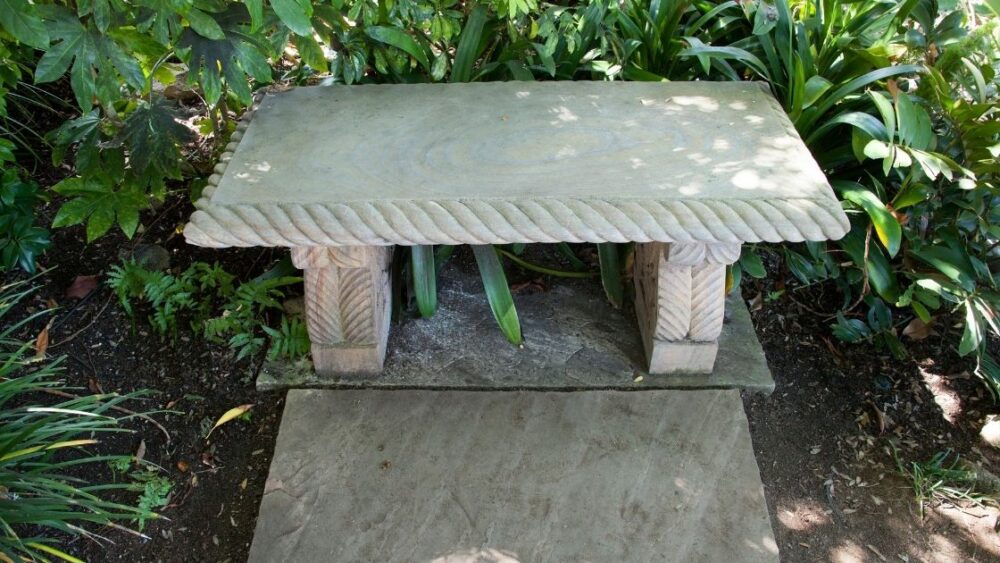
Those benches are not common and are usually a designer item, purchased through high-end retailers. They are very heavy and are installed permanently. The price of benches made out of natural stone/marble can be very high and reach 5 figures – they are mostly a designer item and are not purchased for sheer practicality in mind. That said, they are extremely durable and can last indefinitely.
Additional Features and Ideas to Consider
- A very practical feature of some garden benches is the space beneath the bench being utilized for storage. A typical storage bench has around 5 cubic feet of storage space, which can be used for gardening supplies and all sorts of other items. Hybrid storage bins, which can be used as chairs also exist, but they are less comfortable and usually don’t feature back support.
- Purchasing padded cushions for your bench is another great idea, especially if you like to spend a lot of time on the bench. Cushions for outdoor furniture are generally sun and rain-resistant, but excess water should still be wiped off after it rains, or they can eventually get soaked and damaged.
- Large circular benches with a table in the middle can make family gatherings much more comfortable compared to single, long benches.
- Planter benches can be a great idea if you’re also into gardening – they feature 2 to 4 large pots for plants, built into the bench itself. Integrated planters create a nature-like atmosphere, even if you don’t have a lot of plants in your garden – they are also great for minimalist gardens.
Final Thoughts
Choosing a suitable bench for your garden mainly comes down to the look and style of your garden space as a whole. All modern benches are reasonably durable and are built to withstand the rain and the sun, so durability shouldn’t be the main consideration. Inexpensive, plastic benches can also last a very long time, but they usually lack the solid, stable feel of more expensive designs made out of wood and cast iron.
